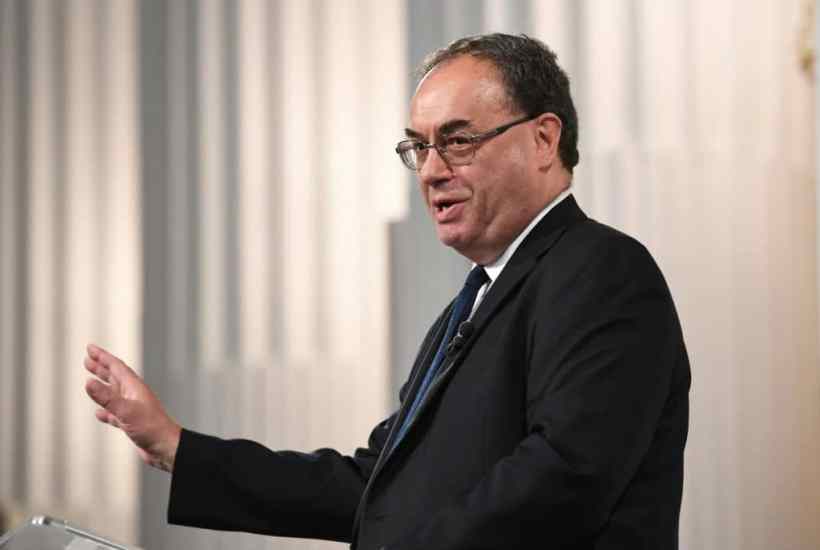There would have been times when the news ‘Bank of England doubles interest rates’ would have been met with a shudder. But when the move takes rates merely from 0.25 per cent to 0.5 per cent it hardly ranks as a shock at all. The days when the base rate reached 15 per cent seem as far away as ever. Rates remain far lower than was considered normal before the banking crash of 2008/09. Prior to that, rates had not been below two per cent in 300 years.
So, no, the Bank of England is not responding aggressively to rising inflation. It has not even begun to climb out of the emergency stimulus environment into which it plunged us 13 years ago – even though the economy is now growing rapidly, employment is at near-record levels and inflation is over five per cent.
Does it have the balls to employ interest rates to bring the Consumer Prices Index to where it should be, according to the duty placed on the Monetary Policy Committee by the government? It is hard to see rates even going to two per cent. Even today’s decision was only passed by a five-four majority.
Today’s minutes – we can be grateful, at least, that the MPC now releases the reasoning behind its decisions immediately rather than forcing us to wait – reveal low expectations for the economy. The MPC thinks GDP grow will slow this year and that unemployment will rise back to five per cent. Inflation it now expects to peak at 7.25 per cent in April – a forecast which has been wrenched upwards in recent months.
But what if inflation does not fall, and becomes a structural issue as it was in the 1970s and 1980s? The MPC reminds us today that its ‘remit is clear that the inflation target applies at all times, reflecting the primacy of price stability in the UK monetary policy framework’. It excuses its failure to contain the CPI:
‘The framework also recognises that there will be occasions when inflation will depart from the target as a result of shocks and disturbances.’
It does make you rather wonder whether we have anyone really in charge of monetary policy any more. As far as the Chancellor is concerned, the Bank of England is independent and won’t intervene in the MPC’s decision-making, but then the MPC doesn’t officially have permission to vary from the target of two per cent inflation. It can’t openly say: bugger inflation; we are not raising rates to five per cent to bring down CPI because it would cause huge damage to the economy and that would far outdo any benefit from lower inflation. The result is that the whole thing is fudged: instead of saying this openly, the MPC is forced to explain its reluctance to raise rates on other factors.
One thing which the MPC did agree on unanimously is to start winding in quantitative-easing by ceasing to reinvest maturing bonds purchased under the scheme. That is one sign, at last, that some sort of normality is beginning to return.
Got something to add? Join the discussion and comment below.
Get 10 issues for just $10
Subscribe to The Spectator Australia today for the next 10 magazine issues, plus full online access, for just $10.





















Comments
Don't miss out
Join the conversation with other Spectator Australia readers. Subscribe to leave a comment.
SUBSCRIBEAlready a subscriber? Log in